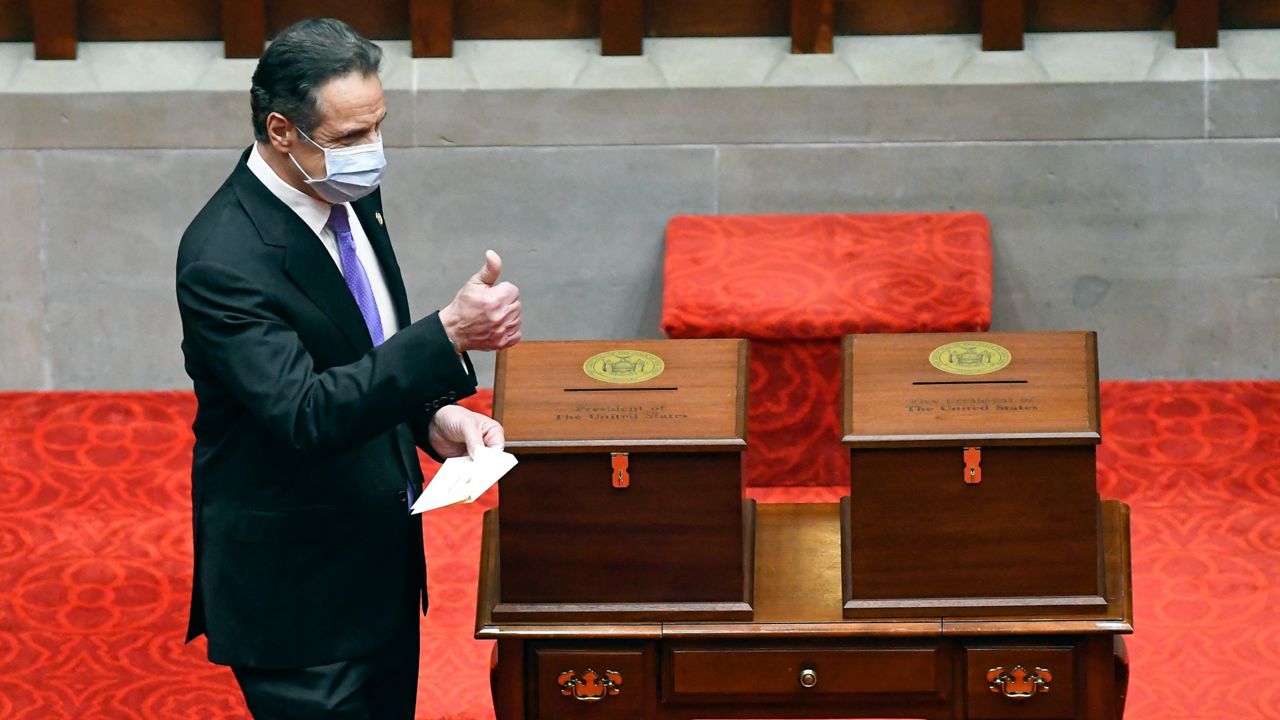There are more than 400 days until the 2024 presidential election but if you ask any political watcher, it’s never too early to start thinking about the next election.
Hudson Valley Democratic state Sen. James Skoufis has faith that his bill regulating so-called "faithless electors” will be signed by Gov. Kathy Hochul when it reaches her desk.
Every four years, New Yorkers head to the polls with the headline race at the top for president of the United States. But thanks to the Electoral College, New Yorkers aren’t voting for the Democratic, Republican, or third party candidate, but the slate of electors that are designated to vote for them.
In the Electoral College, each state is allocated one vote for each member of Congress they have. For the 2024 election, New York will have 28 electors (26 representatives and two senators). A presidential candidate needs to obtain 270 Electoral College votes to be elected to the nation’s highest office.
The electors are typically prominent elected officials, party leaders or people with a personal connection to the presidential candidate. In 2020, former President Bill Clinton, New York state Democratic Party Chair Jay Jacobs and then-Gov. Andrew Cuomo served as Democratic electors.
However, over the course of the country’s early 250 years of electing presidents, there have been rouge Electoral College electors who voted for a candidate other than the candidate they were elected to vote for. These electors that vote for a different candidate are known as “faithless electors."
In 2016, despite Republican nominee Donald Trump winning 306 electoral votes to Democratic nominee Hillary Clinton’s 232 votes, the candidates received 304 to 227 votes due to seven faithless electors in Texas, Hawaii and Washington.
Throughout the country, some states have moved to nullify these faithless votes and some cases penalize them. Fourteen states will void a faithless vote, with Oklahoma and North Carolina voiding the vote and affixing a penalty. In California, New Mexico and South Carolina, the vote is counted, but you will be penalized. New York currently does not have a law regarding faithless electors on the books.
This legislative session, Sen. Skoufis and Assemblyman Jonathan Jacobson advanced legislation that would require an elector to vote for the candidate they were elected to vote for. If they do not vote for that candidate, the elector’s vote won’t be cast and an alternate elector will be called upon.
In a statement to Capital Tonight, Skoufis said the legislation is needed because “faithless electors insult the will of the people and wield an alarming power to disrupt the results of a presidential election.” Skoufis continues “such disruptions reduce the electoral process to an antiquated and purposeless institution. Additionally, rogue electoral votes cascade into a chain reaction of skepticism, breeding distrust among the electorate and casting shadows of doubt over the entire democratic process.”
The legislation received near unanimous support in the state Senate with just one vote against— Long Island Republican Steven Rhoads.
The bill has not yet been delivered to Go. Kathy Hochul. Once the bill reaches the governor’s desk, she will have 10 days, excluding Sundays, to either approve or veto the measure.



